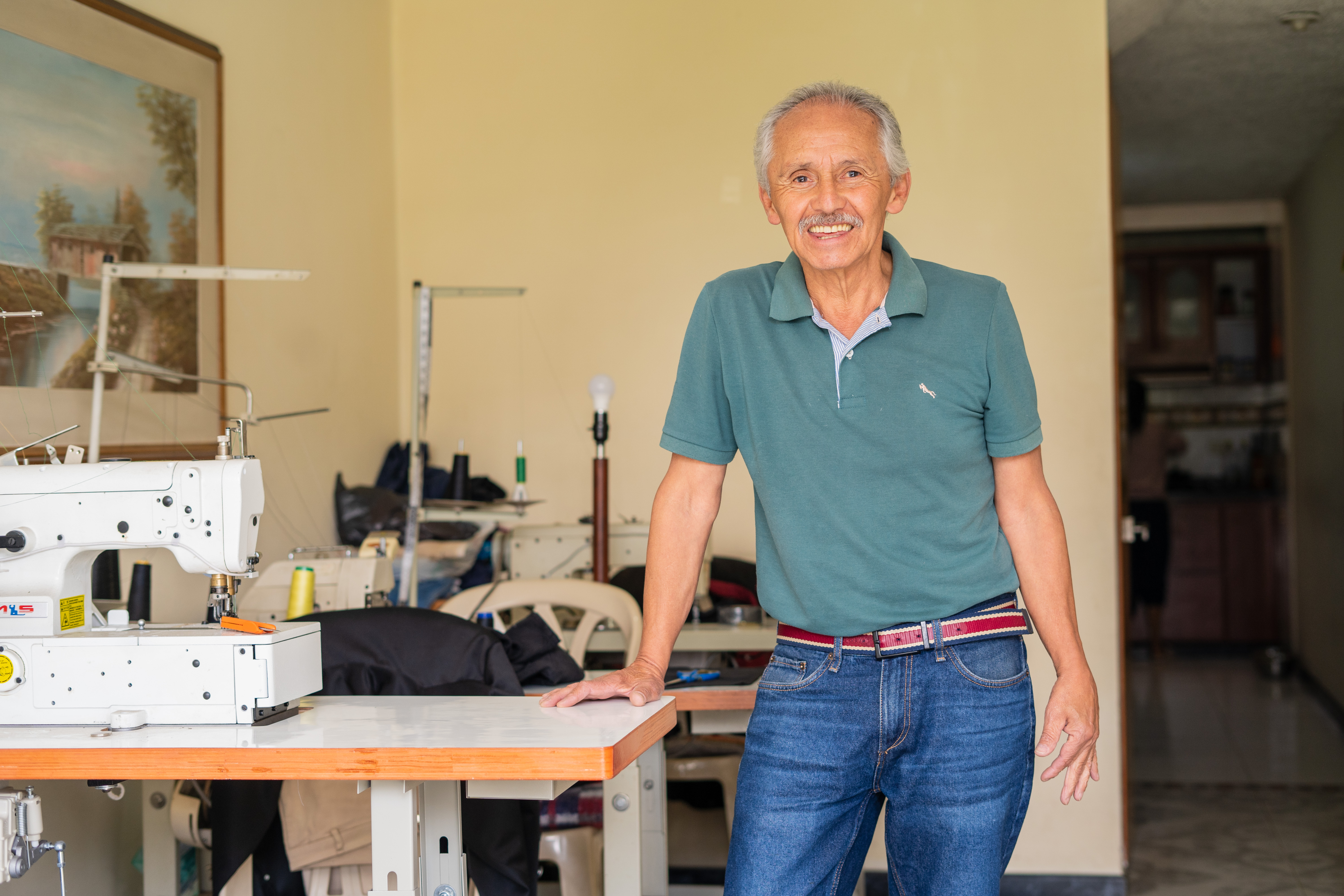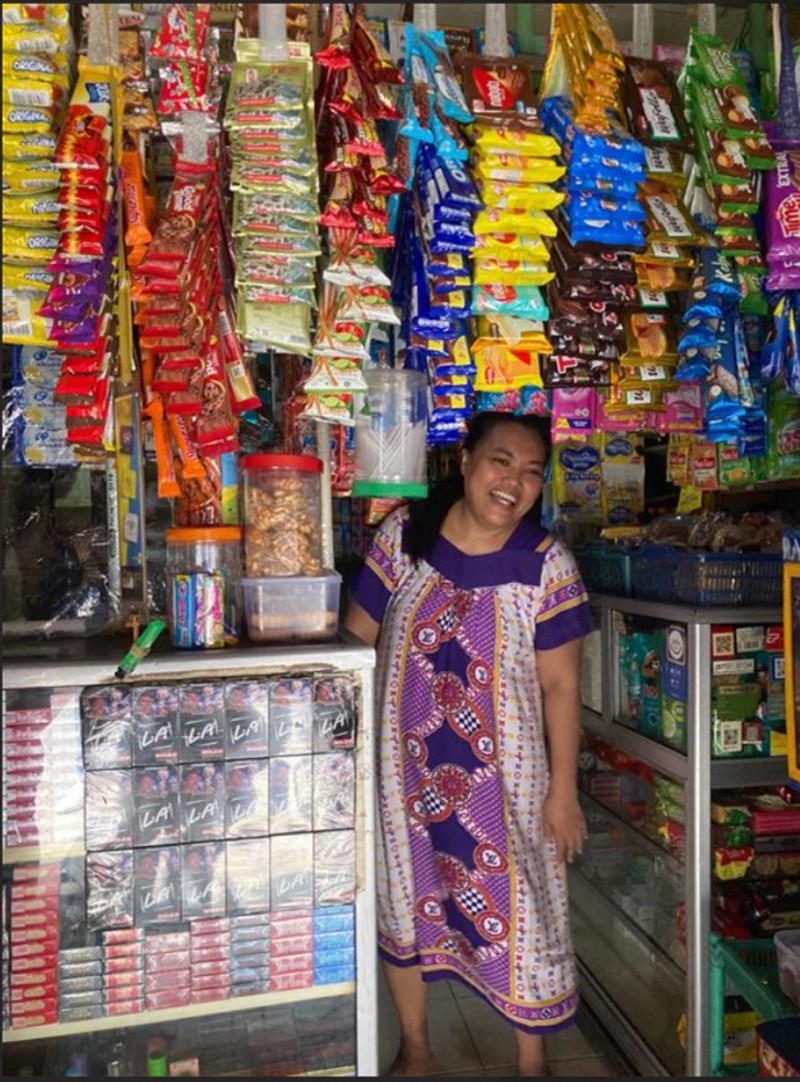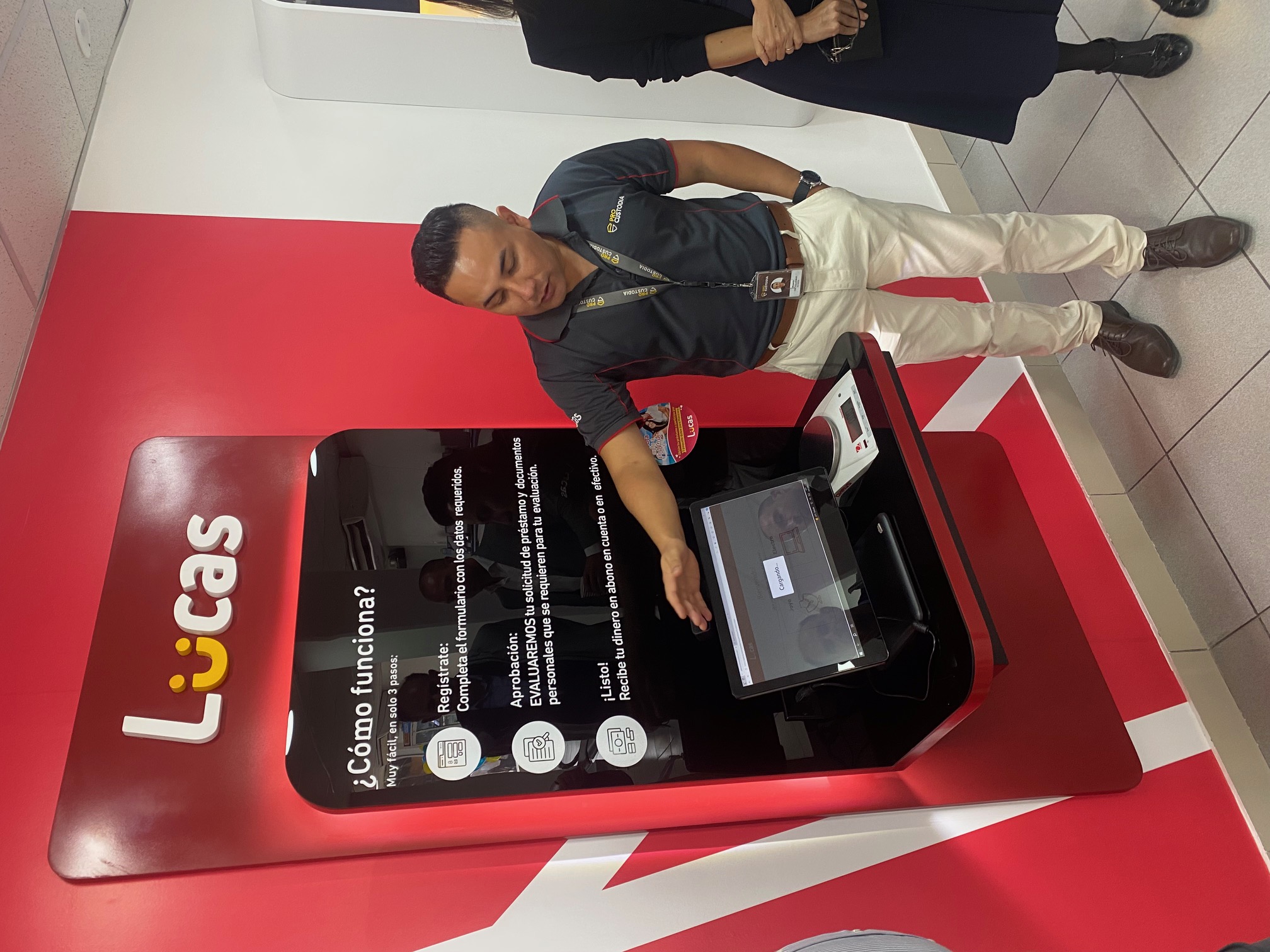Accial Capital is an impact-focused, tech-enabled asset manager working to reduce the emerging market credit gap by providing small business lenders with capital, technical assistance, and data expertise. Driven by the belief that widespread financial health and inclusion fundamentally supports well-being, Accial Capital develops financial products that provide lower and middle-income borrowers with greater opportunity to achieve financial resilience. As of October 2023, Accial has disbursed over $250 million in loans to MSMEs and financed over 1.9 million individual borrowers in emerging markets.
Our loan to Accial Capital will support Micro, Small, and Medium Enterprises (MSMEs) in Latin America and Southeast Asia by providing credit access to a range of diverse and technology-forward alternative lenders. This financing will allow local lenders and MSMEs to continue providing for their communities and help spread financial wellness to low- and middle-income individuals in emerging markets. With this investment in fintech lenders, Accial Capital aims to reduce poverty, support gender equality, and provide affordable clean energy to undermarketed communities while promoting employment and economic growth across the wider regions.
By applying GIIN’s widely accepted IRIS+ indicators – which are formally mapped to progress toward the United Nations Sustainable Development Goals (SDGs) – Accial Capital actively engages in robust impact management and measurement practices and has developed its own Impact Framework. Organized into four sections – vision, focus, responsible lending framework and covenants & measurement – the Accial Capital Impact Framework is designed to maximize investments’ positive social impact and is continuously updated with new information and practices as the field evolves.
Featured Impact Story

Impact Story
Avista: Expanding Access and Enhancing Financial Wellbeing for Pensioners in Colombia
Accial Capital’s investment in Avista supports financial inclusion for pensioners in Colombia, who are often overlooked by traditional lenders. In addition to credit, Avista is broadening its impact by bundling value-added services such as health and life insurance, helping pensioners better manage financial risks. In a recent end-client survey using an AI-powered WhatsApp chatbot, clients reported meaningful improvements in their financial wellbeing: 71% reported that their financial situation improved since taking the loan from Avista and 63% said the financing helped them better manage their finances. With the financing from Avista, clients are able to invest in their business, consolidate higher-cost debt, or manage their household expenses. One borrower shared, “The loan worked out well for me—I used it for a business venture. It was agile, quick, and I plan to take another for vehicle acquisition.” Another added, “They understood the challenges of COVID and provided deep solutions for those of us who lost our financial identity.” Avista is proving that responsible, tech-enabled lending can deliver both reach and impact.
Impact Story
AwanTunai

Accial provided a loan to fund AwanTunai’s portfolio in Indonesia. AwanTunai provides inventory financing for MSME retailers and suppliers of Fast-Moving Consumer Goods, as well as helps to digitize the supply chain management system.
One of AwanTunai’s borrowers, Toko Argo, is an independently operated mom-and-pop shop located in Pademangan, North Jakarta. The shop offers a wide range of consumer products, from coffee to detergent. As a small business without a formal business entity and a lack of credit history, the owner of Toko Argo was unable to secure financing from banks or Non-bank Financial Institutions. However, with AwanTempo, AwanTunai’s app, they now have the option to use short-term pay-later arrangements to purchase inventory for their shop, which enables them to expand their product offerings.
Previously, Toko Argo was limited to purchasing only five to ten products. Now, with the support of the AwanTempo app, they are able to increase their purchasing capacity to 30-50 products. Being able to sell a broader variety of products significantly improves their ability to serve customers, as individuals can find all the items they need in one shop. AwanTunai’s digitization also enables efficient procurement, eliminating the need for travel, parking fees, and time wasted in traffic. Users can conveniently submit orders via the AwanTunai app and have products delivered to their doorsteps. This allows them to focus on serving their customers.
Photo credit: Febe Rahellea
Impact Story
Inversiones La Cruz and Lucas - 60 Decibels Case Study
 Accial Capital’s client, Sacred Valley Capital, manages specialized financial firms in Latin America. Sacred Valley primarily focuses on asset-backed lending, microlending, and automobile financing operations, with locations in Peru, Bolivia, Mexico, El Salvador, Honduras, Nicaragua, and Guatemala.
Accial Capital’s client, Sacred Valley Capital, manages specialized financial firms in Latin America. Sacred Valley primarily focuses on asset-backed lending, microlending, and automobile financing operations, with locations in Peru, Bolivia, Mexico, El Salvador, Honduras, Nicaragua, and Guatemala.
Accial Capital recently conducted a client survey with Sacred Valley and 60 Decibels, an impact measurement company, to assess the impact Sacred Valley has on its end clients. The 60 Decibels team conducted 119 phone interviews with clients from Inversiones La Cruz and Lucas, asset-backed lending operations companies in Sacred Valley’s portfolio.
The study found that Inversiones La Cruz and Lucas’s client base are more underserved than borrowers from the average Latin American microfinance institution. Of the survey respondents, 68% were women and 64% were accessing a loan for the first time. In addition, 61% of clients were unable to find a better alternative to the loan they received, 60% said the repayments were not a burden, and 45% of clients reported a decrease in stress about their finances. The survey results reflected the impact of short-term emergency loans and showed that while they may not transform a borrower’s life, the loans can help borrowers meet their immediate financial needs for both business and household expenses.
Impact Story
Helping education small businesses grow
Background: Simha Duta is an education focused small business in Indonesia founded in 2018 and led by Yoshua Duta Budi Pragiwaksa. Yoshua started providing school facilities and infrastructure to help meet the education needs in Indonesia. Over time, the business expanded to offering digital learning equipment, stationery, and building rehabilitation to schools in the Jember and Banyuwangi areas of East Java.
The Challenge: According to Yoshua, the main challenge in running an education-focused small business is access to working capital. There is a timing mismatch in terms of the provision of goods and services and payment; working capital can help to smooth out cash flows.
The Solution: Simha Duta first applied for financing at Pintek, a fintech platform financed by Accial, in 2021 to access capital to expand the business. With increased access to capital, Yoshua has been able to improve his set of suppliers and access to quality inputs. With better inputs, he can lower his pricing to schools while generating more profits. Since working with Pintek, revenues are up over 100 percent. Today, Yoshua says he doesn’t worry about access to finance anymore, allowing him to focus on his business and deliver orders to schools on time.
The information presented is provided by our portfolio partners for general informational purposes only. We have not independently verified for accuracy or completeness. The testimonials presented reflect the personal experiences and opinions of portfolio partners and their investees, and do not guarantee the same results for others.



 Accial Capital’s client, Sacred Valley Capital, manages specialized financial firms in Latin America. Sacred Valley primarily focuses on asset-backed lending, microlending, and automobile financing operations, with locations in Peru, Bolivia, Mexico, El Salvador, Honduras, Nicaragua, and Guatemala.
Accial Capital’s client, Sacred Valley Capital, manages specialized financial firms in Latin America. Sacred Valley primarily focuses on asset-backed lending, microlending, and automobile financing operations, with locations in Peru, Bolivia, Mexico, El Salvador, Honduras, Nicaragua, and Guatemala.

